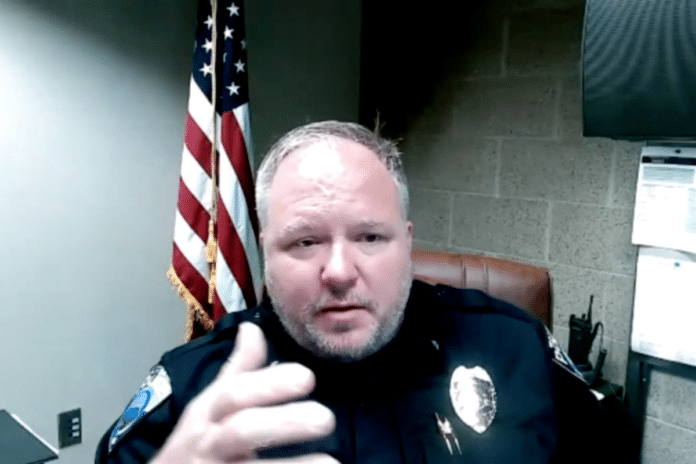
Center of the American Experiment hosted a panel discussion with police chiefs and state representatives last week to discuss the ongoing controversy surrounding a new law impacting school resource officers (SROs).
The law prohibits SROs in cases where there is no threat of bodily harm or death from using the prone restraint or any force that “places pressure or weight on a pupil’s head, throat, neck, chest, lungs, sternum, diaphragm, back, or abdomen.”
At least 17 police agencies have pulled their SROs from schools because of the new law while the Minnesota Police and Peace Officers Association and other law enforcement groups have asked for clarity on the issue.
On the recent panel, Lakeville Police Chief Brad Paulson, who has kept his SROs in schools, described his main issue with the law: the prohibition of the prone restraint.
“The safest way to put someone in handcuffs is to have the noncompliant person face down. It doesn’t mean someone is kneeling on top of them, it doesn’t mean someone’s impeding their breathing, but if you’ve got a situation, and fortunately they’re not frequent, but they can happen when you get thousands of kids and staff members together, if you get a situation where you have a noncompliant person, and you need them facedown to just secure them in handcuffs and then quickly put them in a recovery position … the best and safest way to do that for not just officers but for the individual being handcuffed is to have them either kneeling or facedown.”
Paulson continued: “We just don’t want the wording to cause issues with officers that are trained in this technique that’s been shown to be safe … our officers are trained in dealing with those situations. They know how to ramp up and ramp down, to de-escalate, they do that all the time, and they do that with students all the time in the schools.”
Wayzata Police Chief Marc Schultz was an SRO for three years in Roseville and decided to pull his SRO because of the new law.
American Experiment hosted a panel to discuss the school resource officer issue that an education omnibus bill created.
Wayzata Police Chief Marc Schultz was an SRO for three years in Roseville and decided to pull his SROs when the bill was passed. pic.twitter.com/plnUsFlSKy
— Alpha News (@AlphaNewsMN) September 16, 2023
“[The law] further limits the amount of or the types of restraint or the circumstances that may result in a need for restraint. And it’s rather confusing for people. One of the things that I’m an advocate for is training. Everything we do in law enforcement is on a foundation of training. And many of our officers for their entire careers have been training on 609.06 (use of force statutes). Although it evolves, we train as soon as it does. And we rely on that training to react in situations that require us to react in split seconds. And we get pretty good at it. And when, now, there’s a new requirement or a new hurdle that’s thrown in our way, and we’re told to, as officers of the school, throw what you’ve learned in the past away, and now you’re being held to this new standard — with only a couple of weeks before school coming. It was really scary,” Schultz explained.
He, along with the Plymouth Police Department chief, who shares SROs with Wayzata, made the decision to suspend the SRO program at Wayzata West Middle School.
“But we’re still committed to that school. And so our SRO is in a squad car working school hours, Monday through Friday, he’s going to respond to everything that happens in a timely manner. We are not far from the school,” Schultz said. “But ultimately, we’d love to get our SROs back in the school.”
Rep. Peggy Bennett, a Republican who taught for 33 years, said the whole issue stems from the argument that “schools have become a prison pipeline for students. And there’s this misnomer that some say law enforcement being there is contributing to this.”
Republican Rep. Walter Hudson expressed concern with the lack of opportunities for law enforcement to provide feedback on the changes during the legislative session.
“There were some conversations about the impact of that language in the education committees, but it wasn’t discussed in public safety … in a format where the various public safety organizations and law enforcement agencies could truly focus in on that provision specifically, and give their feedback on how it would be implemented and what the feedback would be on schools — which is why we are in essence sort of having this ad hoc public safety committee debate in public view as the school year is starting,” said Hudson, who serves on the public safety committee.
Gov. Tim Walz declined to call a special session to revise the new law after 44 DFL legislators released a statement expressing support for the law as it’s written.













